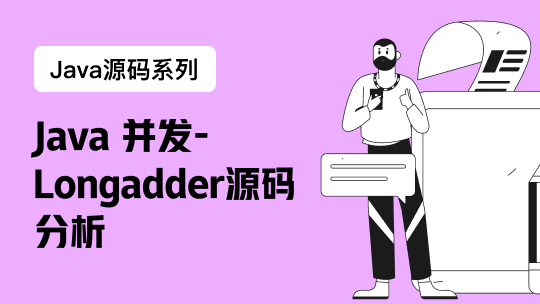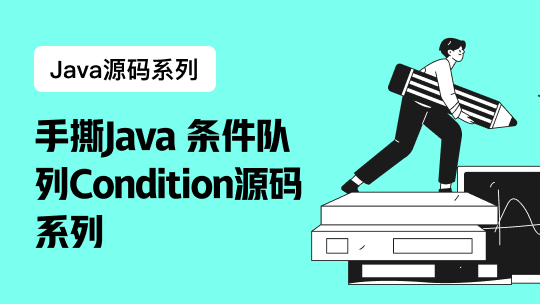As promised in my last few posts, I am finally going to give you a couple of Tomcat tips and tricks, that can seriously speed up your Tomcat startup time. In all fairness, they are simple configurations, and I am not the first to find them, not even the first CFMLer to find them. This is how I got my Tomcat startup from 164 seconds, down to 8 seconds, a gain of 156 seconds, in 1 line of code.
The first thing you have to remember, whether we are running Lucee, or Railo, we are running on the JVM. Tomcat is a Java Servlet and it is much more powerful than our lil old cfml engines. Knowing this, Tomcat has a few settings in given files that don’t apply to MOST of our CFML servers… the big one, is the JAR scanning.
Note: There could be an odd chance this might affect some weird setup, I’m just not sure what at this point.
"The Jar Scanner element represents the component that is used to scan the web application for JAR files and directories of class files. It is typically used during web application start to identify configuration files such as TLDs or web-fragment.xml files that must be processed as part of the web application initialization."
Taken from the Apache Tomcat 8 Configuration Reference. http://tomcat.apache.org/tomcat-8.0-doc/config/jar-scanner.html
For every host / context, tomcat is scanning every folder it knows about (slight exaggeration), and you can see in the logs that it fails to find TLDs and configuration information, that it warns you that you could save time.
org.apache.jasper.servlet.TldScanner.scanJars At least one JAR was scanned for TLDs yet contained no TLDs. Enable debug logging for this logger for a complete list of JARs that were scanned but no TLDs were found in them. Skipping unneeded JARs during scanning can improve startup time and JSP compilation time.
So we are wasting time here, great, how do we fix it. There are two solutions.
// File: conf/context.xml
Inside the Context element, you have watched resources, but you can also set JarScanner with some params. By default scanAllDirectories, scanAllFiles, and scanBootstrapClassPath are set to false, but scanClassPath is true. Setting this, will set that to false too.
Restart Tomcat, and you should see the startup time disappear.
My dev machine right now, has only a few Host setup in my Server.xml, since i have been experimenting with lots of alternatives to using manually coded Hosts, but even with that, my startup times looked like this.
12-Feb-2015 21:43:39.592 INFO [main] org.apache.catalina.startup.Catalina.start Server startup in 23576 ms // Versus 12-Feb-2015 21:48:40.840 INFO [main] org.apache.catalina.startup.Catalina.start Server startup in 3287 ms
Now, if you are concerned, and you want some of your JARs to be scanned, the 2nd option will be better for you.
Note, I am referring to Tomcat 8, Tomcat 7 had 3 settings in the catalina.properties, not just 1.
// File: conf/catalina.properties approx line 96 for standard Lucee Express
tomcat.util.scan.StandardJarScanFilter.jarsToSkip= \ bootstrap.jar,commons-daemon.jar,tomcat-juli.jar,\ annotations-api.jar,el-api.jar,jsp-api.jar,servlet-api.jar,websocket-api.jar,\ catalina.jar,catalina-ant.jar,catalina-ha.jar,catalina-storeconfig.jar,\ catalina-tribes.jar,\ jasper.jar,jasper-el.jar,ecj-*.jar,\ tomcat-api.jar,tomcat-util.jar,tomcat-util-scan.jar,tomcat-coyote.jar,\ tomcat-dbcp.jar,tomcat-jni.jar,tomcat-spdy.jar,tomcat-websocket.jar,\ tomcat-i18n-en.jar,tomcat-i18n-es.jar,tomcat-i18n-fr.jar,tomcat-i18n-ja.jar,\ tomcat-juli-adapters.jar,catalina-jmx-remote.jar,catalina-ws.jar,\ tomcat-jdbc.jar,\ tools.jar,\ commons-beanutils*.jar,commons-codec*.jar,commons-collections*.jar,\ commons-dbcp*.jar,commons-digester*.jar,commons-fileupload*.jar,\ commons-httpclient*.jar,commons-io*.jar,commons-lang*.jar,commons-logging*.jar,\ commons-math*.jar,commons-pool*.jar,\ jstl.jar,\ geronimo-spec-jaxrpc*.jar,wsdl4j*.jar,\ ant.jar,ant-junit*.jar,aspectj*.jar,jmx.jar,h2*.jar,hibernate*.jar,httpclient*.jar,\ jmx-tools.jar,jta*.jar,log4j*.jar,mail*.jar,slf4j*.jar,\ xercesImpl.jar,xmlParserAPIs.jar,xml-apis.jar,\ junit.jar,junit-*.jar,ant-launcher.jar,\ cobertura-*.jar,asm-*.jar,dom4j-*.jar,icu4j-*.jar,jaxen-*.jar,jdom-*.jar,\ jetty-*.jar,oro-*.jar,servlet-api-*.jar,tagsoup-*.jar,xmlParserAPIs-*.jar,\ xom-*.jar
This property lists all of the jars to skip… so if you want, you can name all of the jars to skip, but it extensive, and daunting.
Or you can do the equivalent of the last setting, and set this line to
tomcat.util.scan.StandardJarScanFilter.jarsToSkip=*
This will skip all JARS, and you will see almost identical startup.
That is all of the magic, its 1 setting, and it saves about 5-6 seconds per Host on each and every startup. I previous had 20-30 sites and was waiting for up to 5 minutes, which is ridiculous. Especially considering we do not need scanning.
As I mentioned earlier, Tony Junkes was looking into this when he first moved to Tomcat 8, and posted his article on Fixing Slow Railo Startup on Tomcat 8
Tony goes into more details on this findings, plus a few other bugs he found, so I will not repeat that, please go read his article.
At the same time we posted that, I was still running Tomcat 7 and round that there were two other settings, shown below, but the best performance increase was the same setting still available in Tomcat 8
org.apache.catalina.startup.ContextConfig.jarsToSkip=* = 150 second gain
org.apache.catalina.startup.TldConfig.jarsToSkip=* = No real gain
tomcat.util.scan.DefaultJarScanner.jarsToSkip=* 156 second gain
Although this post is aimed at Tomcat 8, if you are still on Tomcat 7, it still might be fruitful to test this out.
If anyone knows why you might need to leave this on, in our normal CFML running servers, please share that information.
I hope it was worth the wait, go try it.
Please give some feedback in the comments to the BEFORE and AFTER times, and the number of Host records if you are up to counting them, please.
My dev server before the Host cutting was 95% savings on 25 hosts
Current dev server, it was 86.1% savings with 3 hosts.













